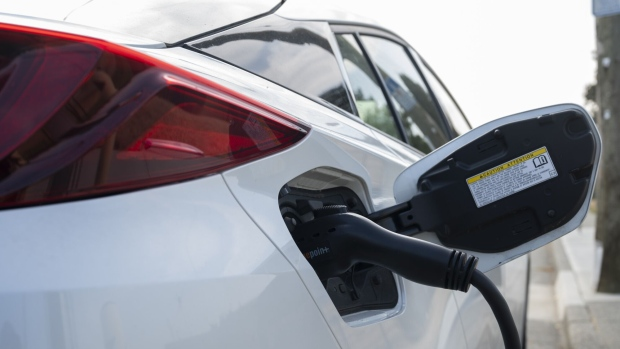
Canada's EV push ramps up in 2024: More models, charging stations, and AI integration forecasted, reshaping the automotive landscape. (BNN Bloomberg)
Canada is steering toward an electric vehicle (EV) revolution in its battle against climate change, eyeing a transformative year in 2024 for the industry.
Government data reveal that among 1,286,951 new vehicle registrations in Canada from January to September 2023, 132,783 were either battery electric or plug-in hybrids. The industry anticipates substantial growth following the federal government's recent declaration to phase out gas vehicle sales by 2035 and a mandate for EVs to constitute 20% of auto sales by 2026.
Environment Minister Steven Guilbeault highlighted the aim of making EVs more accessible across the country, acknowledging the evident demand. Neil Cawse, CEO of Geotab, stressed the necessity for regulatory support in the transition to widespread EV usage, emphasizing the need for investment in EV supply chains and infrastructure for scale efficiency.
Cawse anticipates 2024 as the year to dispel misconceptions around EV ownership, predicting a shift in perceptions and heightened acceptance. Concerns about charging infrastructure and upfront costs persist, but Cawse insists that EV prices, maintenance, and charging issues have substantially diminished. He stressed the need to communicate the hidden cost benefits of EVs, citing their lower total ownership cost, notably in fuel savings and maintenance.
Garrett Nelson, an analyst at CFRA Research, noted a significant drop in the EV price premium compared to gas-powered vehicles, projecting a potential price parity by 2024. Moreover, Cawse and Nelson highlighted the resolved concerns about charging infrastructure, citing ample charging points nationwide and federal plans to invest $1.2 billion in building 84,500 new chargers by 2029.
Amid Tesla's Cybertruck deliveries beginning in 2023, the company's future developments include potentially unveiling a more affordable model in 2024, aiming to attract a broader consumer base. Tim Hortons and Walmart Canada have ventured into the commercial EV sector, introducing electric trucks to reduce fuel consumption.
AI integration is set to revolutionize the EV market, enhancing data collection for better performance and AI capabilities. Cawse foresees AI providing insights for efficient EV operations. However, a report from the Smart Prosperity Institute underscores the need for EV workers to adapt to evolving technological advancements, signaling an impending shift in job requirements rather than job loss due to automation in the sector.















